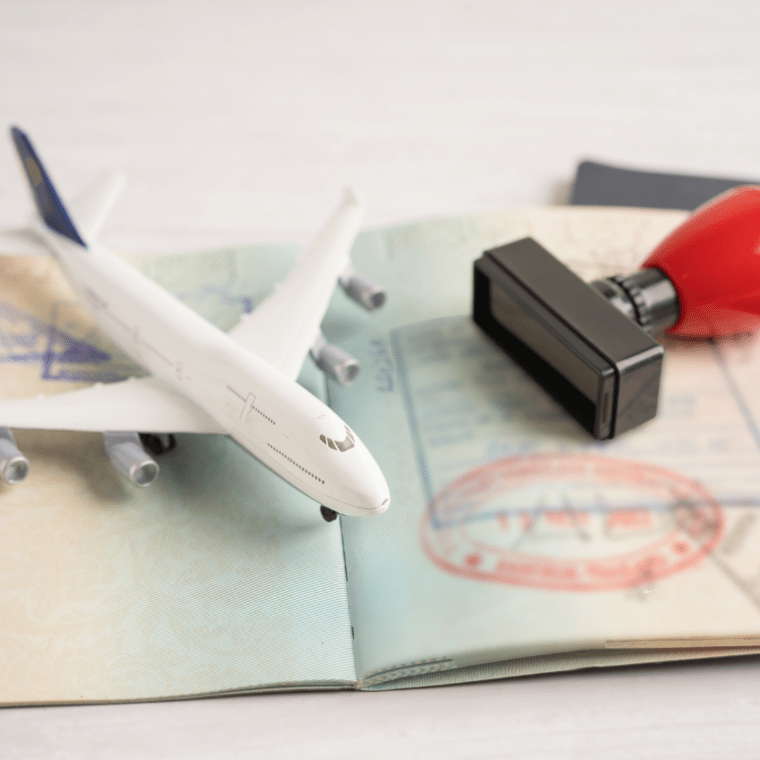Everything You Wanted to Know About the Canada Start-Up Visa (SUV) Program: FAQs Answered

Relocating to Canada on your mind?
If you are an entrepreneur with an awesome, scalable start-up idea, then the Canada Start-Up Visa (SUV) program might be just what you need!
It is specially designed to help innovative entrepreneurs like you build your business in Canada and become permanent residents of the country.
Sounds great? We know you are nodding your head, but we are sure you have more questions. We have the answers right here for you.
This easy guide answers the FAQs about the Start-Up Visa Program, so you can decide if it’s the right path for you. Let’s get started!
Frequently Asked Questions (FAQs) about the Canada Start-Up Visa (SUV) Program
1. What is the Start-Up Visa (SUV) Program, and who is it designed for?
The Start-Up Visa (SUV) Program is a Canadian federal immigration initiative that aims to attract innovative entrepreneurs from across the globe. They must be able to prove they can establish high-growth businesses in Canada, create jobs and contribute to the Canadian economy.
The program grants permanent residency (PR) to eligible entrepreneurs who obtain support from a designated entity (in Canada), such as a venture capital fund, angel investor group, or business incubator.
To qualify for this program, applicants must demonstrate that their business (idea) is innovative, scalable, and capable of competing in the global market.
As a bonus, the SUV program allows up to five co-founders to apply under a single business venture, provided each meets the established eligibility criteria.
2. What are the key eligibility requirements for the Start-Up Visa Program?
To qualify for the SUV program, applicants must meet the following criteria:
* Obtain a Letter of Support: Entrepreneurs must get a Letter of Support from a designated venture capital fund, angel investor group, or business incubator.
* Meet Ownership Requirements: The applicant(s) must hold at least 10% of the voting rights in the start-up. Collectively, the applicants and the designated entity must control more than 50% of the total voting rights.
* Language Proficiency: Applicants must be fluent in either English or French, achieving a minimum Canadian Language Benchmark (CLB) level 5 in all four areas: speaking, reading, listening, and writing.
* Sufficient Settlement Funds: Applicants must prove that they possess sufficient personal funds to support themselves and their family members upon arriving in Canada. The required amount varies based on family size and is updated annually.
* Security and Medical Clearance: Applicants must successfully pass a criminal background check and undergo a medical examination.
3. What is a Letter of Support, and how can you get one?
A Letter of Support is an official document issued by a designated entity, confirming its commitment to the proposed start-up business. It shows that they believe in your business idea and are willing to support you. Here’s how to get one:
- Pitch Your Idea: Find a designated entity (like a venture capital fund or angel investor group) and present your business idea.
- Convince Them: The entity will ask you questions, assess your business plan, and interview you to make sure your idea is realistic and has a good chance of succeeding.
- Get the Letter: If they like your idea and agree to support the business, they’ll give you a Letter of Support. You’ll need to submit this letter when you apply for the Start-Up Visa.
It is important to note that each designated entity has its own selection criteria, and obtaining a Letter of Support DOES NOT guarantee PR approval.
4. What types of designated entities can issue a Letter of Support?
Designated entities are organizations that the Canadian government has approved to support start-ups. Immigration, Refugees and Citizenship Canada (IRCC) recognizes the following as designated entities:
* Venture Capital Funds: These are companies that invest money in new businesses. They must commit to investing at least CAD 200,000 in your start-up.
* Angel Investor Groups: These are groups of wealthy individuals who invest their own money in start-ups. They need to invest at least CAD 75,000 in your business.
* Business Incubators: These are organizations that help new businesses get started by providing office space, mentoring, and other resources. To get a Letter of Support from a business incubator, they need to accept your start-up into their government-recognized incubation program.
Each category has distinct due diligence and investment requirements, and you must be careful to select an entity that aligns with your business’s specific needs and stage.
5. What is the processing time for the Start-Up Visa program? AKA How long will it take me to get a visa?
The processing time for your Start-Up Visa can vary; It usually takes between 12 and 36 months to get your permanent residency.
The good news is that while you’re waiting, you can apply for a work permit. This will allow you to come to Canada and start working on your business while your PR application is being processed.
6. Can applicants include family members in their Start-Up Visa Program application?
Yes. The Start-Up Visa allows the applicant’s spouse/common-law partner and dependent children to be included in the PR application.
* Spouses/common-law partners are eligible to apply for an open work permit, which allows them to work for any employer in Canada.
* Your dependent children (under 22 years of age and unmarried) are eligible for PR status. They can also apply for study permits if required.

7. Is there a minimum investment requirement for the applicant?
There is no mandatory minimum personal investment stipulated by IRCC.
Bear in mind that if the applicant receives support from a venture capital fund or angel investor, they will invest CAD 200,000 or CAD 75,000 in your business.
That being said, entrepreneurs must show that they have enough money to support themselves and their families in Canada. You also must have a good financial plan for your start-up.
8. Can you work in Canada while your PR application is being processed?
Yes. As of October 3, 2024, SUV candidates may apply for an open work permit that’s valid for three years. This means you can work for any employer in Canada while you’re building your business.
This is good news because previously, applicants were restricted to closed work permits, limiting them to working solely for their start-up. The new open work permit gives you the flexibility to earn money while you get your business off the ground.
9. Are applicants required to actively manage their start-up in Canada?
Absolutely, yes!!
SUV applicants must have an active and ongoing role in managing their start-up from within Canada. This business engagement cannot be passive; you need to be directly involved in the day-to-day operations and development of your business.
10. What happens if the start-up is unsuccessful? Will it affect PR status?
No. If an entrepreneur gets PR status through the SUV program but the business subsequently fails, their PR status is not affected.
Canadian immigration policy assesses entrepreneurial potential rather than guaranteeing business success; in simpler language, the government is more interested in your potential as an entrepreneur than in guaranteeing that your business will be a success.
11. Can multiple co-founders apply under the same start-up?
Yes. Up to five applicants may apply under the same business application.
However, each must hold at least 10% ownership, and the group collectively should own more than 50% of the voting shares.
In addition, each co-founder must meet individual eligibility requirements, such as proven language proficiency and sufficient settlement funds.
12. Is a business plan required for SUV applicants?
Yes. A comprehensive business plan is critical for securing a Letter of Support and demonstrating the viability of the business to IRCC. The plan should include:
* Market analysis: Who are your customers? What are their needs?
* Financial projections: How much money do you expect to make? What are your expenses?
* Staffing plan: Who will work for you? What will their roles be?
* Revenue model: How will you make money?
* Competitive advantage: What makes your business better than the competition?
IRCC and the designated entities will thoroughly examine the business plan to assess its potential contribution to Canada’s economy.
13. Can SUV applicants apply for Canadian citizenship?
Yes. After obtaining PR status, applicants can apply for Canadian citizenship once they meet the physical residency requirement of residing in Canada for at least 1,095 days (3 years) within a 5-year period.
14. What are the tax implications for Start-Up Visa entrepreneurs in Canada?
Once an SUV applicant becomes a Canadian tax resident, they are subject to Canadian taxation on their worldwide income. Generally, they will pay:
* Corporate tax (if the business generates revenue).
* Personal income tax on employment (salary) and business earnings (anything you make from your business).
* GST/HST obligations if your business sales exceed CAD 30,000 annually.
It’s a good idea to consult a tax professional to get advice on how to plan your taxes.
15. Are Start-Up Visa entrepreneurs permitted to expand their business outside Canada?
Yes. While the business must maintain a strong presence in Canada, entrepreneurs can expand operations internationally. However, IRCC expects that all key business activities (such as headquarters, management, and research and development) be based in Canada.
End of Session
The Start-Up Visa Program is undoubtedly a great opportunity for entrepreneurs with innovative ideas to establish their businesses in Canada and gain permanent residency.
While this guide addresses some of the most frequently asked questions, it is not a substitute for professional advice. Every individual has different needs, and we strongly recommend that you contact an expert.
At Woodhaven, we ensure you receive personalized guidance tailored to your specific situation. Contact us today!




